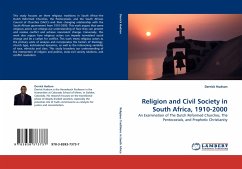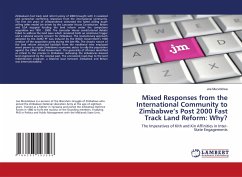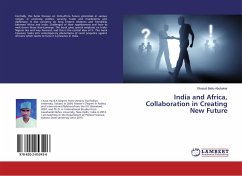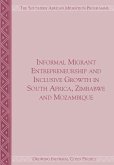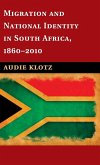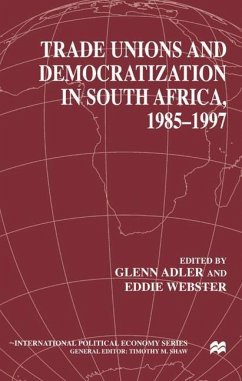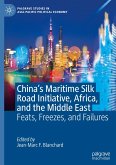This study focuses on three religious traditions in South Africa--the Dutch Reformed Churches, the Pentecostals, and the South African Council of Churches (SACC)--and their changing relationship with the South African government from 1910-2000. This work argues that some religious actors can enlarge our understanding of how they can prevent and resolve conflict and achieve nonviolent change. Conversely, this work also argues how religious actors can impede nonviolent social change and be a catlyst for conflict. This work treats religious actors as the primary units of analysis and incorporates the factors of theology, church type, institutional dynamics, as well as the intervening variables of race, ethnicity and class. This study broadens our understanding of the intersection of religion and politics, state-civil society relations, and conflict resolution.
Bitte wählen Sie Ihr Anliegen aus.
Rechnungen
Retourenschein anfordern
Bestellstatus
Storno

